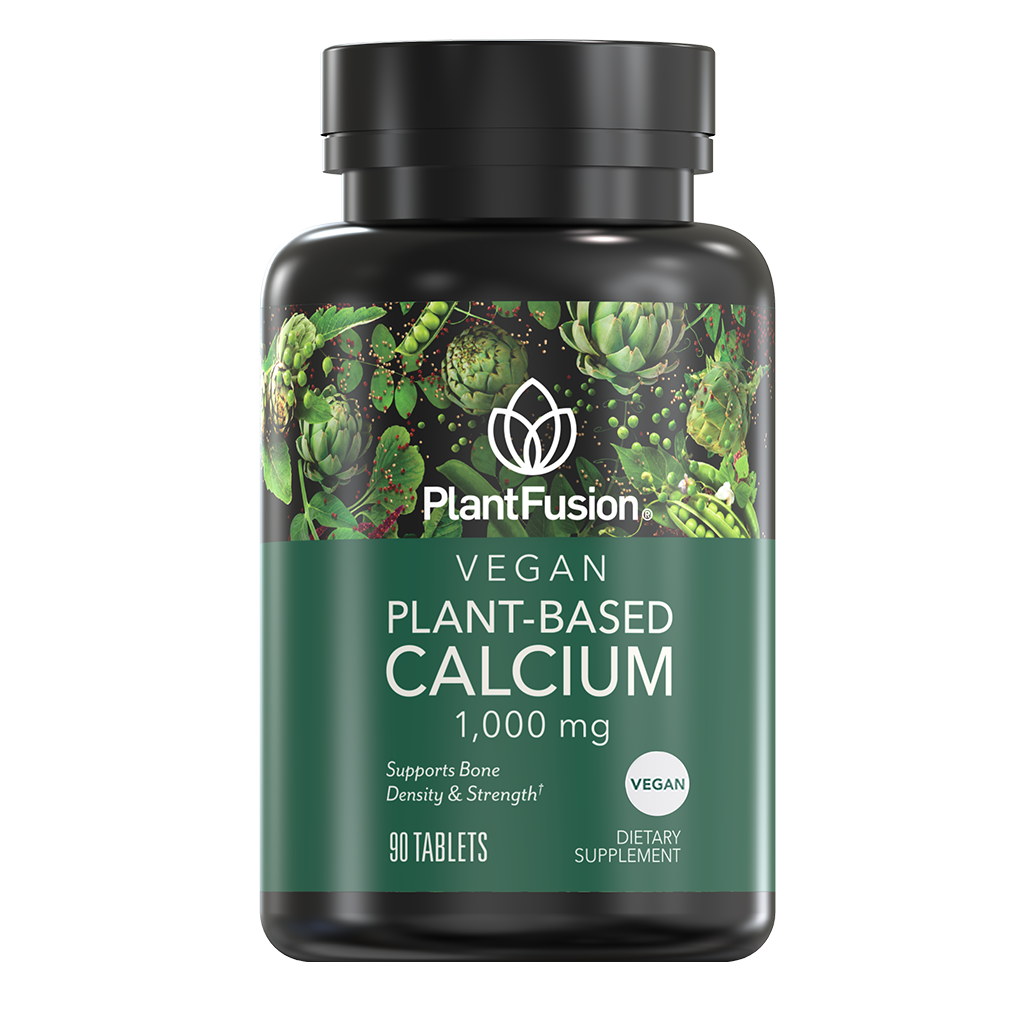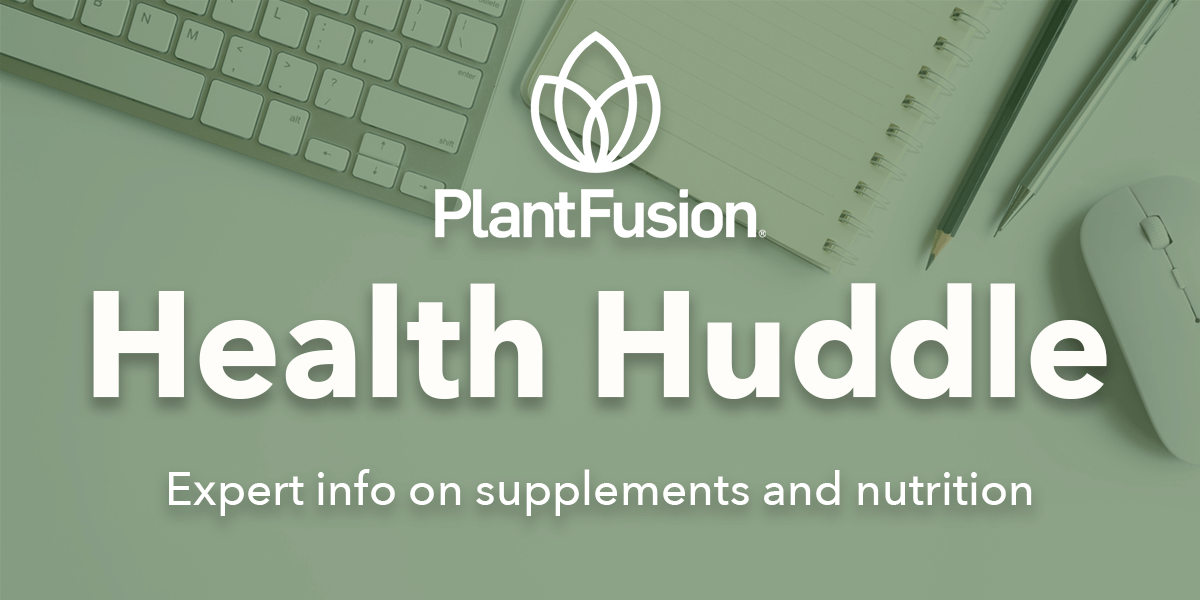What comes to mind when you hear the word fat? For many, it’s indiscriminately linked to obesity, heart disease, and cancer. Fat has no doubt gotten a bad rap, but there is new science emerging that shows a completely different side to the story.
The truth is; our ancestors actually got most of their energy from fats and protein, not carbohydrates - and certainly not refined carbohydrates like sugar. Now, in the span of just a few generations, this equation has completely flipped. The majority of calories in the American diet now come from sugar and refined carbohydrates. No surprise, the timing of this dietary shift almost perfectly mirrors the rise in average bodyweight, insulin resistance, and metabolic syndrome in our society.
Here at PlantFusion, we’ve been engaged in a long-term research project to explore new and innovative plant-based fats. I’m not talking about olive oil or palm. This is a whole new generation of botanical lipids that have a favorable impact on natural energy, sugar balance, and anti-inflammation. If we can harness the power of these nutrients, we can possibly realign the carb/fat imbalance that most people experience. No doubt, this could be helpful for those trying to maintain a low carb diet. But more important than that, it may unlock a superior energy source that can impact overall health and performance each and every day.
Below we’ve summarized some of our findings. We also share a few quick tips about what to watch out for in the current crop of Keto/Fat supplements being sold today. But first, here is a quick overview on types of fats and their critical function in the body.
The Value of Fats
Vitamin absorption - Vitamins A, D, E, and K can only be absorbed in the presence of fat. These fat soluble vitamins are then transported through our cellular membranes to be utilized by different functions in our body. Without fat, our cells wouldn’t be able to communicate properly to each other, which would pose for malabsorption of these essential vitamins and put us at risk for declining bone, brain, and immune health.
Energy - One of the most important ways that your body uses fat is as a source of energy. Research shows that relying on fat as a primary fuel source is healthier than relying on carbohydrates. As for your brain cells, they cannot directly use fat as fuel — but your liver breaks fatty acids down into molecules called ketones, which your brain can use as an energy source. Your brain is nearly 60 percent fat, so eating more healthy lipids can make for clearer thinking. That's a win!
Reduce insulin resistance - Every time you eat simple carbs like sugar or refined flour, your blood sugar spikes, and your pancreas secretes insulin to trigger your cells to absorb sugar from your bloodstream. Eventually, your cells become less sensitive to insulin, and you may develop diabetes. Constant fluctuations in blood sugar lead to mood swings, irritability, weight gain, and that afternoon energy-crash that you may fight with coffee. Even worse, when you consume high-carbohydrate foods, you get hungry again as soon as your blood sugar levels drop. Even Superman would overeat in this situation!

Five Remarkable Plant-Based Super Fats
There is an endless stream of information online about healthy fats and oils. You’re probably very familiar with olive and palm oil, which are commonly found in cooking. There are also popular seed oils from sunflower, sesame, pumpkin, and chia, which have gained popularity, driven in part by primitive diet trends (i.e. paleo & keto diets). Here are five more healthy fats that are worth looking at:
- Avocado Oil –is high in oleic acid (omega-9), one of the best fats for brain health and improving mood by reducing anger. Omega-9 helps decrease triglycerides and LDL cholesterol, which in turn helps to lower blood pressure. Avocado oil is also rich in antioxidants like lutein, supporting optic nerves and maintaining eyesight.
- Coconut Oil – is a good source of plant-based saturated fats. Unlike the saturated fats you get from animal sources, coconut fats can not only help you feel satiated, but also improve your HDL (good) cholesterol levels. It also provides lauric acid, which is antibacterial and antifungal, helping to remove excess candida from our intestinal tract.
- Theobroma Oil – is the fat from cocoa beans, also known as cocoa butter. Cocoa bean is very high in polyphenols like epigallocatechin, resveratrol, procyanidin – among many others. Cocoa is known to contain much higher levels of total phenolics than most teas and red wine, offering even higher antioxidant levels.
- Mango Kernel Oil –is the seed of the popular fruit known for its bright colors and delicious taste. The fruit is the source of some very unique and potent phenolic compounds that include mangiferin, chlorogenic acid, quercetin, and caffeic acid. These antioxidants help preserve cellular health by fighting free radicals and oxidative stress. Although Mango Kernel Fat has been used topically as a beauty enhancer, it has more powerful health promoting nutrients for internal health.
- Sea Buckthorn Oil – is very high in phytonutrients, vitamin E, and vitamin C. It's also a great source of omega-3, 6, 7, and 9 fatty acids and used primarily to improve skin health, the largest organ of the body. Omega-7 also plays a large role in the healthy inflammation response, helping to lower C-Reactive proteins which are a leading cause of inflammation. As a plant source of palmitoleic acid (omega-7), Harvard School of Public Health has identified a variant of this structure to be effective against type 2 diabetes, and they currently have a patent-pending on this fatty acid.
Link to Harvard study here.

Things to Watch Out For When Supplementing With Healthy Fats
In an effort to exploit the Keto craze, companies are rushing to market with so-called Ketogenic powders. These products typically have higher concentrations of either MCT or coconut oils. Be very careful with these supplements! Ingredient source and handling can have a dramatic effect on potency and safety. When fat is exposed to the oxygen in the air, it begins to break down in a process called auto-oxidation. We’ve all experienced the guacamole that turns into yucky brown slop in 24 hours, or the coconut oil that suddenly gets a lumpy texture and a funny smell. Auto-oxidation is unavoidable, however, there are a number of processes that can slow it down significantly, making your high fat supplement safer and more effective.
Micro-Encapsulation
Micro-encapsulation is a process whereby fats are coated in a protective organic compound to seal off and protect them from the air. This has been used for years on delicate ingredients like enzymes and proteins. We’re investigating using this method to deliver a unique plant-based fat blend that is both high potency and shelf stable.
Climate-Controlled Distillation
OK, this is a little technical but it just means that the fats were processed in an environment where temperature and humidity are controlled. Even more advanced methods include managing the ratio of nitrogen to oxygen in the atmosphere of the manufacturing space. Remember oxygen and fat don’t get along.
Blending With Alkaline Substrates
This is when you blend the fat in a stabilizing base that is non-acidic and/or oxygen absorbing. We suggest plant-protein, which tends to be very stable and alkaline (wink). Or green leafy vegetables that are naturally high in iron – an oxygen scavenger.
Ingredient Source Selection
There’s no difference between one avocado versus another, right? Wrong, through our Select Source™ process we’ve identified countless examples where soil quality, climate, and even altitude can have a significant influence on a plant’s nutritional value. For example, in exploring various cultivars of avocados from around the world, we discovered that oleic acid content can vary by as much as 30% or more in avocado fruit just based upon the region and elevation in which it’s grown. Here’s an interesting piece of research done in cooperation with the Agriculture Dept of the National University in Columbia, published in Columbian Agronomy Journal in 2015.
(link: here)
Three Tips For Supplementing With Healthy Fats
- Be very cautious of the hundreds of keto products being sold online. Many of these are from unknown companies who popped up out of nowhere attempting to exploit a diet trend. Stick with brands you know or those that have top consumer rankings/reviews. Better yet, go to a reputable retailer who has done the homework for you!
- We described earlier how ingredient handling and processing methods are critical to a plant-based fat’s efficacy and stability. These methods are expensive, which is why very few companies use them. A powder that’s been sitting on the shelves for a year or more can be risky. If something smells or tastes funny, don’t risk it!
- Keep fats in an air tight container, stored in a cool dry place and don’t trust expiration dates! Keep it in the fridge and try to use it within 30 days of purchase.
We’re in the process of developing the world’s first high-potency super fats blend. The research is done and the product is in the final stages of development – set to launch in January of 2019. If you would like to be the first to receive updates and special offers, please type “SUPERFATS” in the blog comments section below.
Also, if you know a friend who is using Keto products or trying to replace carbs/sugar with healthier forms of energy, please share this link as we will be posting additional information in the coming months.
Author: Chris Young














